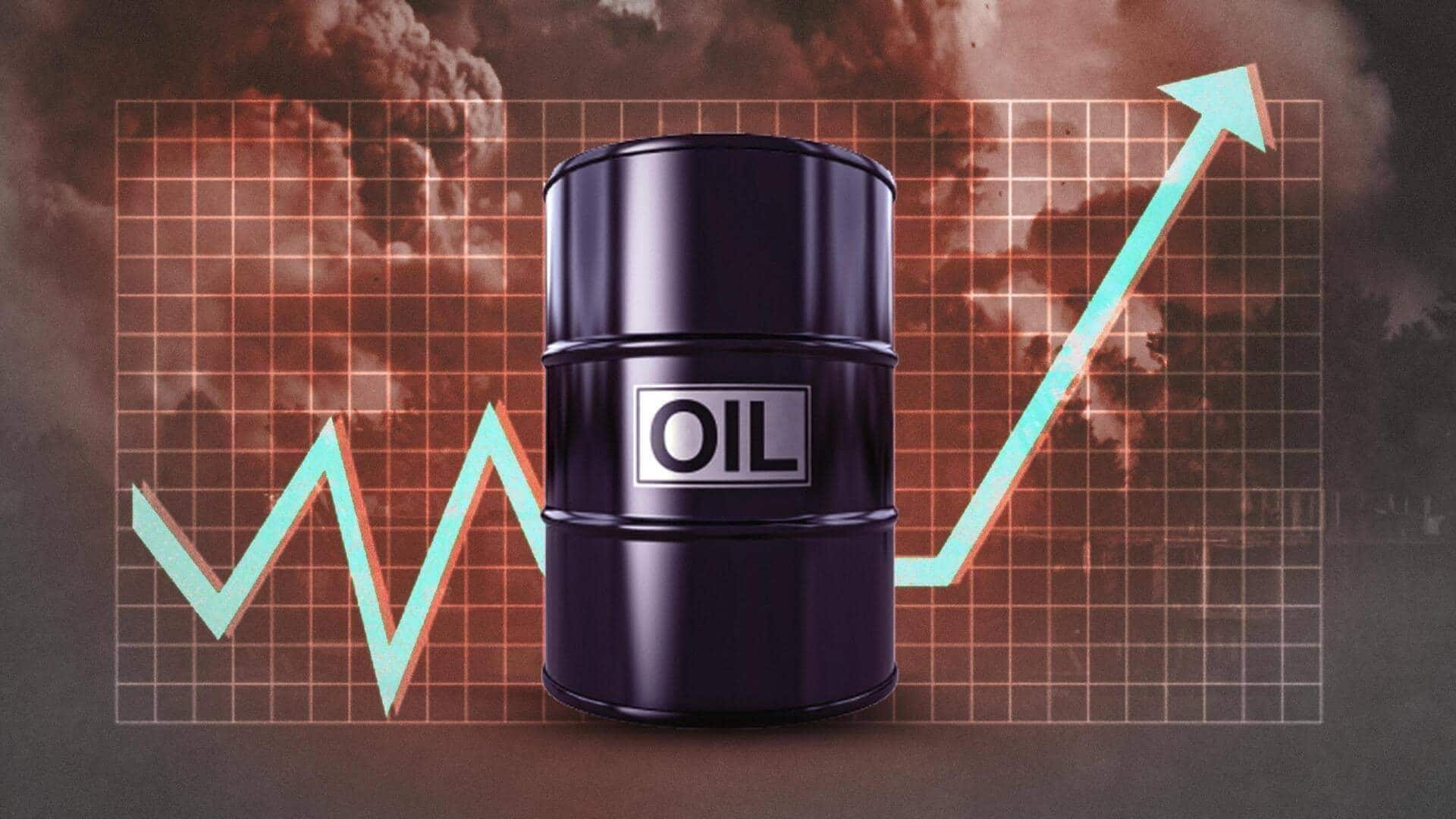
Oil prices surge 5% as Iran threatens Hormuz strait closure
What's the story
Oil futures surged by up to 5% on Sunday night after the US conducted airstrikes on Iran's three main nuclear sites. The attacks have heightened fears of a potential supply shock, with concerns that Tehran could retaliate by closing the Strait of Hormuz, a key maritime chokepoint. Brent crude, the international benchmark, rose as much as 5.7%, trading above $80 per barrel while West Texas Intermediate futures also jumped over 4% to hover around $77 per barrel.
Strategic decision
Iran votes to close Strait of Hormuz
In response to the US strikes, Iran's parliament has voted to close the Strait of Hormuz. The final decision on this strategic move lies with Iran's Supreme National Security Council and Supreme Leader Ayatollah Ali Khamenei. The waterway is a major route for global oil trade, accounting for nearly 20% of all seaborne oil traffic.
Market impact
Oil prices could hit $100 per barrel
If oil exports through the Strait of Hormuz are disrupted, prices could easily hit $100 per barrel, warned Andy Lipow, president of Lipow Oil Associates. JPMorgan analysts have also predicted that a closure of this key waterway could push oil prices to $120-$130 per barrel under a "severe outcome." Such an increase would likely raise gasoline and diesel prices by up to $1.25 per gallon.
Retaliation risks
Iran could back Yemen's Houthi rebels
Iran could also retaliate by backing Yemen's Houthi rebels in their attacks on commercial shipping. If the conflict escalates with US or Israeli strikes on Iran's oil export infrastructure, Tehran may respond by targeting export facilities in neighboring countries. This could further disrupt global oil supply and push prices higher.
Market stability
Key determining factor for oil price stability
The duration of any potential disruption is key to determining oil price stability, according to Rebecca Babin, senior energy trader at CIBC Private Wealth. She said if infrastructure is hit but can be quickly restored, crude may struggle to hold gains. However, if Iran's response results in lasting damage or introduces long-term supply risk, a stronger and more sustained move higher in prices could be seen.